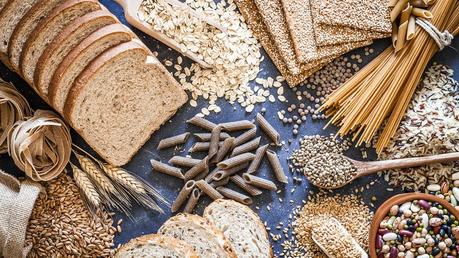
A new study from researchers at Harvard medical school published in the Journal of Nutrition reports increased brain reward centers' stimulation from eating higher amounts of carbohydrates.
These findings add support to the potentially addictive qualities of carbohydrates and may explain why carbs can lead to overeating.
Drs. Laura Holsen, David Ludwig, and colleagues randomized 72 overweight volunteers to one of three diets meant to maintain weight stability over 20-weeks. Here are the three diets:
- 60% carbs, 20% fat, and 20 % protein
- 40% carbs, 40% fat, and 20% protein
- 20% carbs, 60% fat, and 20% protein
The study provided all meals and snacks for all participants - an impressive undertaking totaling over 2,000 meals and snacks.
The volunteers then underwent fasting brain MRI scans to measure brain blood flow, followed by another scan four hours after eating their first meal of the day.
Subjects eating 60% of the calories from carbs had a 43% higher blood flow in the brain's nucleus accumbens area compared to those eating 20% carbs (The nucleus accumbens is an area associated with reward behavior including addiction and cravings.). Even the fasting hypothalamus blood flow was 41% more intense in the high-carb group than the low-carb group (the hypothalamus is believed to play a key role in energy regulation and calorie intake.)
Interestingly, there was no cerebral blood flow difference between the 20% and 40% carbohydrate groups. The only significant difference was between the 20% and 60% carb groups. Also of note, subjective cravings and hunger did not differ between any of the groups.
Additionally, the authors report an association between insulin levels at the beginning of the study and subsequent MRI findings.
While the results are complicated, the implication is that those with higher insulin levels who eat a high-carb diet are more prone to a weakening of the reward response, meaning they need a higher volume of rewarding food to get the same response as someone with a lower insulin level. This finding likely requires follow-up replication to understand the clinical implications better.
What does all this mean? Although it is not conclusive, the data suggest that higher carbohydrate diets may stimulate food reward centers and promote greater calorie consumption than lower carbohydrate diets. The reward stimulation appears to be acute (after eating a meal) and chronic (since the findings persisted even in the fasting MRI).
I would like to see a longer-term study in free-living conditions to see how calorie intake and food quality intake differ between the groups and how carbohydrate quality impacts the difference. But this study is a great start toward understanding better the impact carbohydrates have on our desire to eat.
Are you looking to get started on a low-carb or keto diet? Try our personalized meal planner to get meal plans that suit your needs and preferences - or sign up for our 10-week Weight Loss for Good course to learn how to achieve long-term, healthy weight loss.
Thanks for reading,
Bret Scher, MD FACC
Start your FREE 30-day trial!
Get delicious recipes, amazing meal plans, video courses, health guides, and weight loss advice from doctors, dietitians, and other experts.

